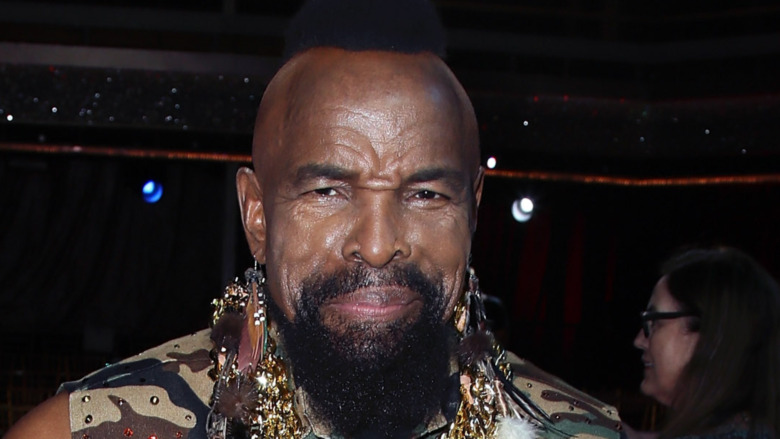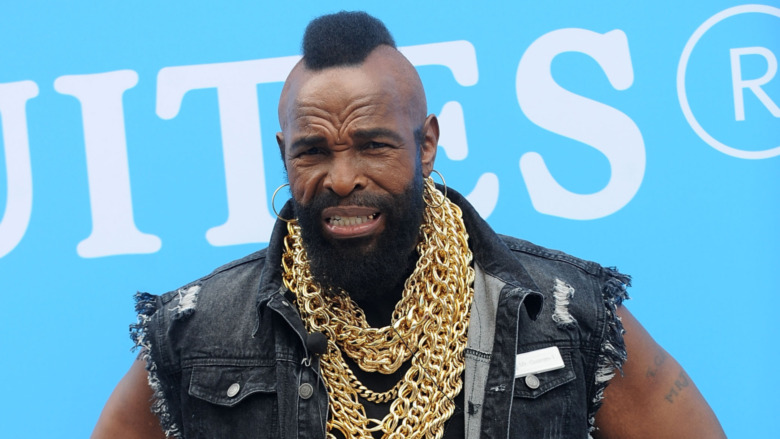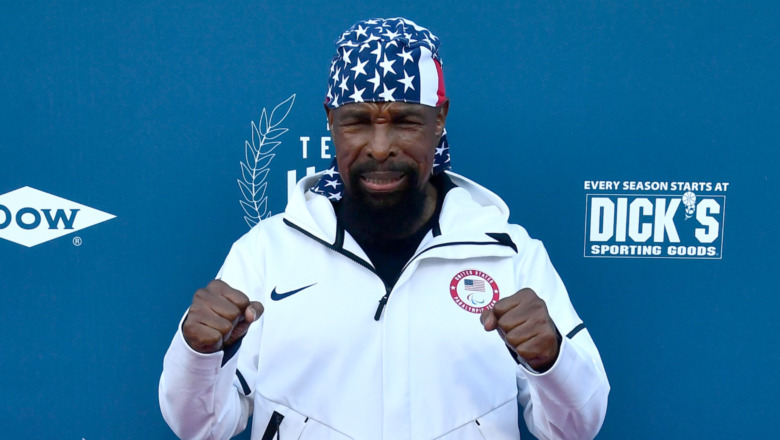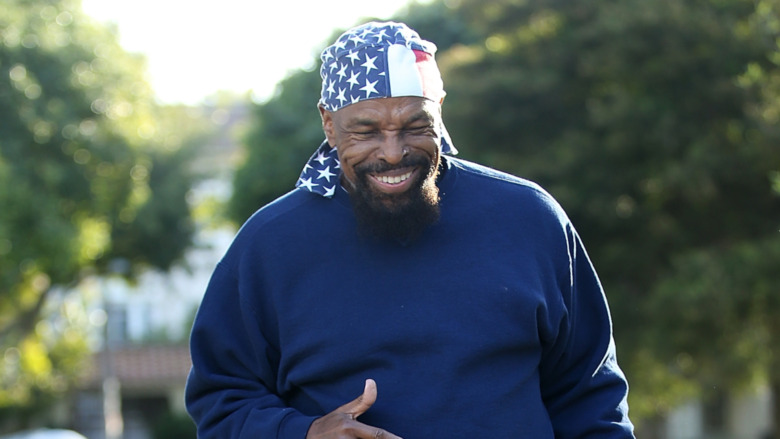Whatever Happened To Mr. T?
For a while in the 1980s, there was no escaping Lawrence Tureaud, or as he was more commonly known, "Mr. T." The former Chicago bouncer was at once a TV star (both "The A-Team" in prime time and his own Saturday morning animated adventures), a movie star, and a professional wrestler (feuding with Roddy Piper), at the same time adorning lunchboxes, cereal boxes, and other bits of memorabilia. His signature mohawk-like hair style (modeled after that of the Mandinka warriors of West Africa, according to Cool Men's Hair) and his catchphrase, "I pity the fool!," contributed to his branding, making him one of the most-recognizable celebrities of his day.
Once his popularity wore off, however, he all but disappeared from the public consciousness. Beginning in the 1990s, illness started to limit the amount of time he could devote to working and making personal appearances. Though he's continued to perform off and on over the years, often in reality TV shows or in low-budget commercials, he has failed to reach the stratospheric level of stardom he'd enjoyed decades earlier. Meanwhile, when he's not performing, he's throwing himself into religious work and community service.
Here is the true story of what happened to Mr. T.
Mr. T didn't disappear, he just became less visible
Mr. T's career trajectory followed that of several celebrities who seemingly came out of nowhere, were the biggest thing ever for a few years, and then all but disappeared. It happened to dozens of celebrities before him, it was happening with other celebrities in his own time, and it's happened to several since him. Unlike many others, however, Mr. T never stopped working completely — rather, he just started taking on lower-profile roles, with less frequency.
Part of that was the natural progression of his career; as popular culture changed and new people and things demanded attention, his relevance slipped. Another part of the reason for his "disappearance," however, was illness. Specifically, as Coping Magazine reported, in 1995 Tureaud was diagnosed with cutaneous T-cell lymphoma, or mycosis fungoides. He even joked that he came down with a cancer named for him: "Can you imagine that?! Cancer with my name on it — personalized cancer," he quipped.
He did a steady stream of commercials, reality TV, and voice work
Mr. T's resume since the middle 1990s contains a laundry list of commercial credits, appearances on reality TV, and voice acting gigs. For example, between 1996-2014, according to IMDB, T is credited with fewer than two dozen acting roles on TV and in movies — most of them cameos, brief appearances as himself, small roles, or voice credits.
He's also done commercials throughout his career, both while he was at his peak professionally and since. During his heyday, as Forbes reported, T was making as much as $5 million per year from commercials alone. He's continued to do commercials, and has lent his name to various products. By 2010, his commercials had tended towards lower-profile advertisers, such as when he signed up for Gold Promise, a gold-buying company, according to Forbes.
One of his commercial endeavors caused considerable controversy. As Fox News reported, a commercial for Snickers that aired only in Great Britain, in which T tells a speed walker to run "like a real man," didn't land well. An LGBTQ advocacy group called the ad homophobic, and T publicly denied being a homophobe.
Mr. T switched up his look after reconciling with his religious beliefs
Lawrence Tureaud was born the son of a minister, according to People, and his personal faith has permeated his life. In 2007, Mr. T told Beliefnet that he is a born-again Christian. In 2005, that faith caused him to have a personal reckoning with his signature look.
T had, for decades, been known for his outrageous collection of gold chains, saying that they served as a visual metaphor for slavery and his own place in the history of Blacks in America, as TV Acres explained. "I wear gold instead of iron chains ... because I am still a slave, only my price tag is higher now," he said.
But after helping victims of Hurricane Katrina, he was done with the ostentatious display of gold. "As a Christian, when I saw other people lose their lives and their land and property ... I felt that it would be a sin before God for me to continue wearing my gold. I felt it would be unnecessary and disrespectful to the people who lost everything, so I stopped wearing my gold," he said, via Sky News.



